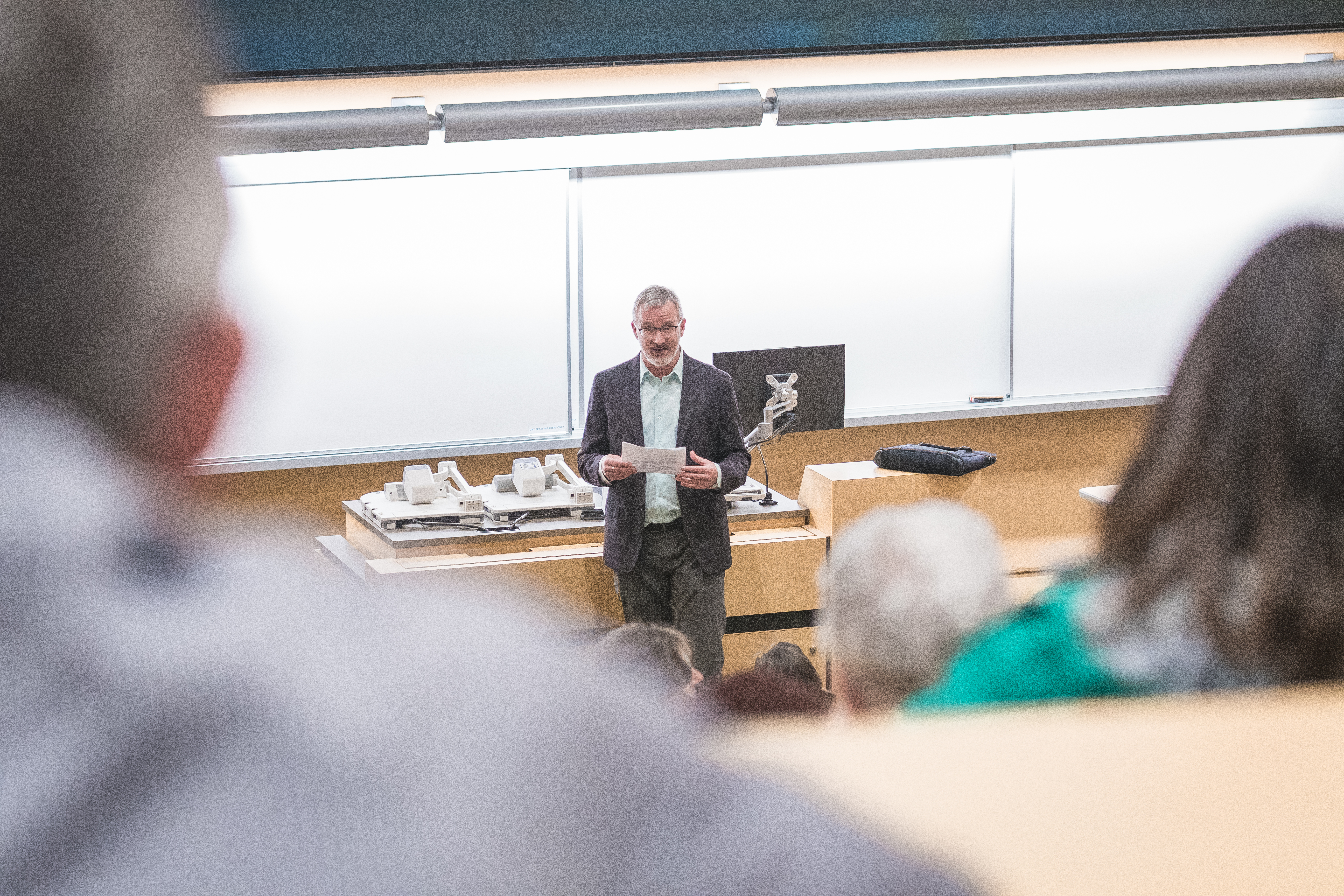The Arts One Program has been a proud part of people’s lives since 1967. Each year, the Arts One program is taught around a guiding theme that unifies the texts, films, and works studied by the students. You can explore all past themes since 2018.
This theme explores how we distinguish the virtual from the actual. The attempt to frame a distinction between appearance and reality has always been a major preoccupation in social, political, philosophical, and literary works, leaving some to question whether ultimate reality is fated to lie beyond our grasp, others to wonder whether there is some way to access reality through appearance, and still others to question or reject the distinction entirely.
This course explores the nature and challenges of the appearance/reality distinction via a diverse literature of ancient, modern, and postmodern works. While the idea that “things are not always as they seem” is a very old notion, it has never been more timely, as social media has greatly amplified the power to disseminate views driven by personal values, and opinions packaged as irrefutable fact. In a world permeated by allegations of “fake news” and allusions to “virtual reality,” and where once venerable grand theories can look like little more than competing and self-serving stories, sustained reflection on the validity, salience, and evolving forms of the appearance/reality distinction beckons.
Book list:
Plautus, Amphitruo
Sappho, Poems and Fragments
Plato, Republic
Augustine, The Literal Meaning of Genesis [selections]
Grettir's Saga
Machiavelli, The Prince
Shakespeare, Hamlet
Galileo, “Letter to the Grand Duchess Christina”
Cavendish, The Blazing World
Nietzsche, On the Genealogy of Morality
Rousseau, Discourse on Inequality
Blake, The Marriage of Heaven and Hell
Austen, Emma
Dostoevsky, Crime and Punishment
Melville, Typee
Brecht, Life of Galileo
Laurence, A Bird in the House
Moore, Gibbons: Watchmen
Herbert, Still Life with Bridle
Coates, Between the World and Me
Rankine, Citizen: An American Lyric
Hamid, The Reluctant Fundament
Vowell, Unfamiliar Fishes
King, The Inconvenient Indian [selections]
Marx, The Communist Manifesto
From the secrets of nature to secrets of state, and from the mystery of the other to mysteries of the self, we ceaselessly probe the boundaries of our knowledge, ever aware that to push them yet further can empower us or even destroy us.
The dangers—and the allure— of our inquiries into the hidden and the forbidden remain an enduring theme in drama and in novels, in philosophy and in science, in religious thought and in poetry, in music and in film. Should there be constraints on our knowledge, or limits to the power it brings us?
These questions haunt our aspirations to know and to control, overshadowing the seeker of knowledge—whether Eve or Frankenstein, the philosopher who challenges our deepest convictions, or the scientist whose discoveries cannot be ignored or outrun. Through both story and sustained argument, and from The Odyssey to The Road, we will examine how the moral, social, and psychological costs of our pursuit of knowledge are assessed and engaged, and just how boldly we might dare to know.
Book List:
Homer, The Odyssey
Genesis
Sophocles, Antigone
Plato, Republic
Lucretius, On the Nature of Things
Niccolò Machiavelli, The Prince, Discourses on Livy
Galileo, “Letter to the Grand Duchess Christina”
Bertolt Brecht, Life of Galileo
William Shakespeare, Hamlet
Rousseau, Discourse on Inequality
Thomas King, The Inconvenient Indian
Mary Shelley, Frankenstein
Fyodor Dostoevsky, The Grand Inquisitor
Friedrich Nietzsche, Genealogy of Morality
Kate Chopin, The Awakening
Sigmund Freud, Civilization and its Discontents
Ernest Hemingway, In Our Time
Sylvia Plath, The Bell Jar
Heiner Kipphardt, In the Matter of J. Robert Oppenheimer
Jon H. Else, The Day After Trinity
Hannah Arendt, Eichmann in Jerusalem
Ta-Nehisi Coates, Between the World and Me
Mohsin Hamid, The Reluctant Fundamentalist
Alan Moore/Dave Gibbons, Watchmen
Cormac McCarthy, The Road
Benjamin Hertwig, Slow War
